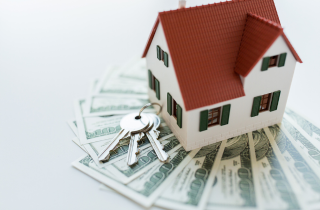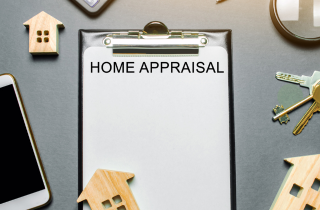Understanding Closing Costs In Pennsylvania: A Comprehensive Guide
It is imperative to have a comprehensive understanding of closing costs when purchasing a residence in Pennsylvania. The rapid accumulation of these expenses can significantly impact the total cost of buying a property.
One critical component of closing costs that must be assessed is the obligation for appraisal and inspection expenses. In Pennsylvania, these expenses are typically the vendor’s responsibility.
The vendor pays the appraisal fee in advance, which covers an assessment of the property’s worth. The client is also responsible for the inspection fee, including thoroughly evaluating the property’s condition.
Purchasers must allocate funds for these expenses when preparing to purchase a residence in Pennsylvania.
Table Of Contents
- Decoding The Mystery: What Exactly Are Closing Costs?
- Unpacking The Components Of Closing Costs: What’s Included?
- Step-by-step Guide To Calculating Your Closing Costs In Pennsylvania
- Who Is Responsible For Paying Closing Costs In Pennsylvania?
- The Seller’s Perspective: Understanding And Managing Seller Closing Costs
- Should You Consider Paying The Buyer’s Closing Costs When Selling Your Home?
- Strategies For Reducing Your Closing Costs In The Keystone State
- Appraisal And Inspection Fees: Who Bears The Financial Burden?
- Saving Money On Appraisals And Inspections When Buying Or Selling A Home
- Who Is Responsible For The Cost Of The Appraisal?
- What Is The Average Appraisal Fee In Pennsylvania?
- Who Pays For Inspection And Appraisal In Pennsylvania?
Decoding The Mystery: What Exactly Are Closing Costs?

Buyers must be aware of many expenses when purchasing a residence in Pennsylvania. Understanding the individual responsible for covering closing costs is one of the most critical elements of the home-buying process.
Closing costs encompass all fees for completing a real estate transaction, including appraisal and inspection fees. Buyers must comprehend the expenses and the individual accountable for their payment, as they can accumulate swiftly.
In Pennsylvania, the buyer and vendor typically have their closing costs to fund. Consequently, both parties must thoroughly assess and negotiate these expenditures before concluding the purchase agreement. Solving this puzzle can help homebuyers guarantee a seamless closing process and prevent unpleasant surprises.
Unpacking The Components Of Closing Costs: What’s Included?
When purchasing a property in Pennsylvania, the closing procedure necessitates paying a wide range of expenses. Appraisal and inspection are among the most critical components.
These services are indispensable for evaluating the property’s value and condition before completing transactions. The client is typically responsible for the cost of these services, although merchants may acquiesce to covering a portion or all of the costs in specific circumstances.
Purchasers must thoroughly examine their contracts and negotiate with their sellers to determine who will be accountable for these expenses. Furthermore, prospective purchasers must designate an adequate budget for these expenditures, as they can accumulate rapidly and significantly influence the total cost of purchasing a property.
By understanding the contents of appraisal and inspection fees, buyers can more effectively prepare for the closing process and prevent any unanticipated surprises.
Step-by-step Guide To Calculating Your Closing Costs In Pennsylvania

It is imperative to understand the closing costs associated with acquiring a property in Pennsylvania. These costs can fluctuate substantially based on the property type, location, and loan product.
The individual responsible for the appraisal and inspection costs substantially impacts the closing cost calculation.
The lender mandates an appraisal to ascertain the property’s fair market value, and an inspection is conducted to evaluate any potential defects in the residence. Including these procedures in your total closing costs is essential to guarantee that you are making a prudent investment.
Comprehending the parties accountable for these expenses is imperative for more effectively preparing for your homebuying journey.
Who Is Responsible For Paying Closing Costs In Pennsylvania?
Many expenses must be considered when purchasing a residence in Pennsylvania. A critical element is the obligation to cover closure costs.
The seller is typically responsible for these expenses, including appraisal and inspection fees. The swift accumulation of these costs may surprise some first-time homebuyers.
Purchasers in Pennsylvania must understand their financial obligations and allocate funds accordingly when buying a home.
The Seller’s Perspective: Understanding And Managing Seller Closing Costs
During the home-buying process in Pennsylvania, both buyers and sellers must be aware of the closing costs associated with the vendor. Merchants must also be aware of the expenses for which they are responsible.
These expenses typically encompass commissions for real estate agents, transfer taxes, and any modifications or enhancements the buyer requests during inspection. Furthermore, the vendor may be accountable for the expenses associated with appraisal and inspection fees.
Vendors must collaborate with their real estate agents to negotiate these expenses and alleviate financial stress. Effectively managing and understanding the seller’s closing costs can ensure a successful and seamless transaction for both parties.
If you want to explore a different easy and quick selling process, check us out! Tristate Properties makes the entire selling process hassle free!
Should You Consider Paying The Buyer’s Closing Costs When Selling Your Home?
When selling a residence in Pennsylvania, it is imperative to have a comprehensive understanding of the home buying process and the parties responsible for specific expenses. One potential factor is the seller’s willingness to cover the buyer’s closing costs.
This pertains to expenses such as appraisal and inspection fees, typically incurred by the purchaser during the closure process. Offering to cover these costs may appear to be an additional expense for the vendor; however, it can be a strategic ploy to entice potential buyers and ultimately sell your home more quickly.
Nevertheless, conducting a comprehensive evaluation of the financial implications and negotiating with your real estate agent before making a decision is essential.
Strategies For Reducing Your Closing Costs In The Keystone State
Homebuyers in Pennsylvania must be aware of a wide range of expenses when purchasing a residence. These expenses include appraisal and inspection fees, which can accumulate swiftly and significantly affect closing costs.
However, some methods can be implemented to reduce these expenditures and make the homebuying process more affordable. An alternative is to negotiate with the vendor to cover the cost of the appraisal and inspection.
An alternative method is to conduct a cost comparison among various service providers. Additionally, you may endeavor to negotiate a discount or consolidate services with your favored provider.
By being proactive and investigating these strategies, Pennsylvanians have the potential to save thousands of dollars on closing costs.
If you want to avoid paying costly fees, give us a call at (267) 703-9956 ! Tristate Properties can help you! With us, the selling process it’s 100% Free! If you want to know more, check out our about us section!
Appraisal And Inspection Fees: Who Bears The Financial Burden?
A multitude of phases are involved in the homebuying process in Pennsylvania. The appraisal and inspection of the property are essential components that should be noticed.
These two steps determine the value and condition of the residence, which substantially impact the ultimate sale price. The typical question is: Who is accountable for the financial burden of these fees? The vendor is typically responsible for paying both the appraisal and inspection fees.
This suggests that, as a prospective homeowner in Pennsylvania, you should be prepared to allocate funds for these expenses when assessing your total expenditures. It’s essential to remember that these fees may vary depending on the location, size of the property, and type of inspection being conducted.
Consequently, it is essential to conduct a thorough investigation and understand all associated expenses before making any final decisions regarding the acquisition of a residence.
Saving Money On Appraisals And Inspections When Buying Or Selling A Home

When purchasing or selling a residence in Pennsylvania, it is imperative to understand the parties responsible for the costs associated with appraisals and inspections. These critical phases in the home-buying process determine the property’s value and condition.
Fortunately, there are methods to minimize the cost of these expenses. An alternative is negotiating with the seller to have them cover or divide the entire cost.
An alternative method is to assess the prices of numerous appraisal and inspection companies. Additionally, specific lenders may offer discounts or reimbursements for using their preferred appraisers and inspectors.
By being proactive and investigating your options, you can potentially save hundreds or even thousands of dollars on these essential expenses.
If you are looking to save money, you can contact Tristate Properties, with us you don’t have to pay for costly repairs, agent fees or inspections, meaning you put more cash in your pocket! If you want to know more, check out our home buying process!
Who Is Responsible For The Cost Of The Appraisal?
When purchasing a home in Pennsylvania, it is imperative to have a comprehensive understanding of the home-buying process. This process necessitates identifying the individual accountable for the appraisal and inspection expenses.
The appraisal costs are typically the vendor’s responsibility, as they are required for obtaining a mortgage loan. The vendor may agree to reimburse these expenses in certain circumstances as part of the negotiation process.
Buyers should conduct an exhaustive review of their contracts and consult their real estate agent to determine potential expenses. Purchasers should be aware that they may be required to cover the cost of any supplementary inspections required during the appraisal process.
By understanding who is accountable for these expenses, homebuyers can more effectively prepare themselves for the financial aspects of purchasing a home in Pennsylvania.
What Is The Average Appraisal Fee In Pennsylvania?

The cost of appraisal and inspection is just one of the numerous variables that must be evaluated when purchasing a residence in Pennsylvania. Prospective purchasers may need clarification about the average appraisal fee in Pennsylvania due to the rapid accumulation of these two critical phases in the home buying process.
According to recent data, the average cost of an appraisal in Pennsylvania is between $300 and $500. Nevertheless, the property’s location and size can influence this.
Even though purchasers are typically responsible for this expense, certain vendors may offer to share or cover the cost as part of the negotiation process. Before the acquisition is finalized, both parties must discuss who will be accountable for the appraisal expenses.
Who Pays For Inspection And Appraisal In Pennsylvania?
When purchasing a residence in Pennsylvania, it’s necessary to understand the intricacies of the home-buying process. The question of who is responsible for the cost of appraisal and inspection fees is frequently raised. In Pennsylvania, this is typically the vendor’s responsibility.
The purchaser is responsible for hiring a licensed appraiser to determine the property’s value. They are responsible for recruiting a licensed inspector to evaluate the property’s condition comprehensively.
When contemplating the acquisition of a residence, prospective buyers must include these expenses in their budget, as they have the potential to accumulate. However, there may be instances in which sellers are amenable to covering these expenses as part of the negotiation process.
Both purchasers and vendors must thoroughly comprehend the parties responsible for covering these expenses during the homebuying process in Pennsylvania.
At Tri State Properties, we buy your house regardless of its condition or situation. These findings apply to all cities and counties in Pennsylvania, including Abington, Bensalem, Exton, Lafayette Hill, Bristol and more! If you have any questions, contact us at (267) 703-9956 or complete our form. You can also review our clients’ testimonials to see their selling experiences!
| HOME APPRAISAL | REAL ESTATE APPRAISAL | PROPERTY APPRAISALS | HOME INSPECTOR | HOME INSPECTIONS | HOME LOAN |
| HOME MORTGAGES | MORTGAGE LENDER | MORTGAGE LENDING | BROKER | REALTOR | REAL ESTATE BROKERS |
| PRICED | LENDING | LOANS | CASH | TITLE COMPANIES | REFINANCE |
| REFINANCING | PROPERTY TAXES | PROPERTY TAX | ROOF | HOA | ESCROW |
| EQUITY | PAYMENT | BANK | ASSET | TITLE SEARCH | HOUSING MARKET |
| POLICY | HOMEOWNER | LAW | INTEREST | HVAC SYSTEM | HEATING AND COOLING |
| GOAL | EVALUATION | DOWN PAYMENT | BORROWERS | CONSUMERS | UNDERWRITING |
| TECHNOLOGY | SINGLE-FAMILY HOMES | RISK | PLUMBING | OWNERSHIP | THE NATIONAL ASSOCIATION OF REALTORS |
| HOMEOWNERS INSURANCE | HOMEOWNERS | FINANCES | FHA | EXPERT | MORTGAGE POINTS |
| DEED | CONFIDENCE | CONDOMINIUMS | CONDOS | COMPANY | PAYOFF |
| BLOG | BETTER BUSINESS BUREAU | BBB | THE REAL ESTATE | OF REAL ESTATE | THE PROPERTY THE |
| A HOME APPRAISAL | THE BUYERS CLOSING COSTS | PRICE OF THE HOME | OF THE PROPERTY THE | THE APPRAISAL COMES IN | IS A HOME APPRAISAL |
Resources To Help You Sell A Property In Pennsylvania
Contact Us
We would love to hear from you! Please fill out this form and we will get in touch with you shortly.

